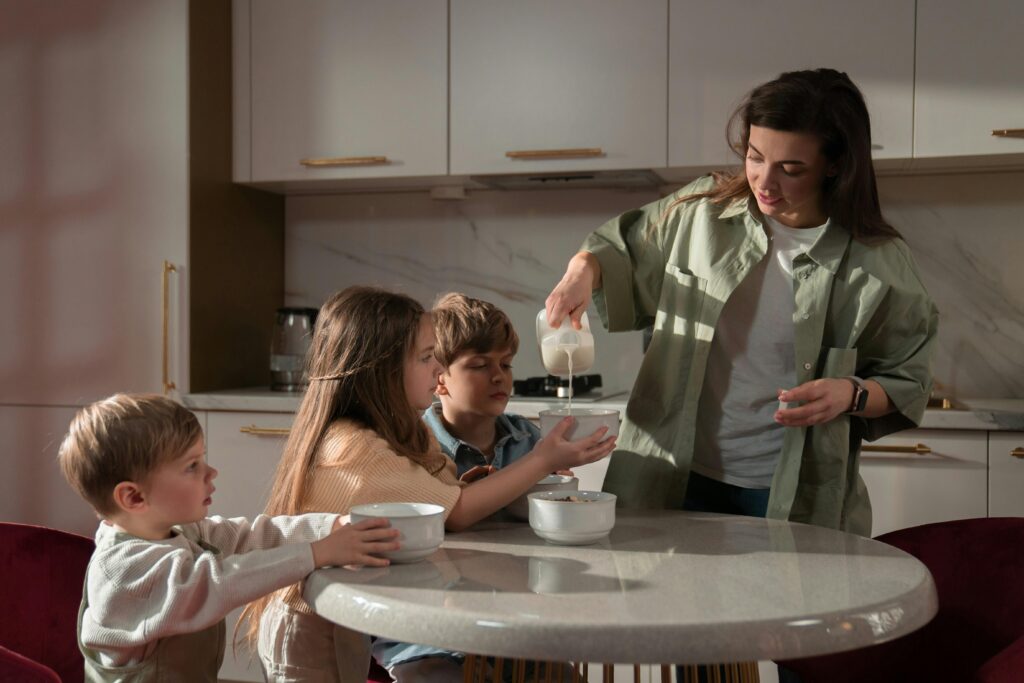The family life of the company manager
If parents are healthy and have a minimum of self-control, they will come to love their children very much

The family occupies an exceptional place in the life of any human being, and, therefore, of the manager. However, the demands of the results of the business environment often lead to forgetting this reality.
Dedication to work does not merit neglecting family life, because “excellent human goods are achieved in the family”, and also: “the goods of the family and the home are the most important part of human happiness” (Lorda, 2010). Household activities seem to us – and are – very ordinary activities; and therefore, nothing happens if we do not do them. Accompanying an eight-year-old son to his football game; explaining a math lesson; arriving on time to put the youngest to bed; tidying a room: all this seems so ordinary to us that we imagine it as delegable or that by not doing it anything serious happens.
And indeed, all of this is very vulgar, and what’s more, it seems to us that anyone could do it; but all of this is – at the same time – very noble, very human, and very authentic. And, therefore, when a company manager does it, something wonderful happens: he becomes more noble, human, and authentic.
On the other hand, since the survival of the company requires results, the business environment becomes “excessively” objective in the evaluation of the members of the company. Each one counts for what he contributes to the organization: therefore, it is not seen well that someone is in the organization and does not contribute what the others do; and that the effort of the others supports him.
Therefore, it is not strange that this way of thinking is transferred – almost involuntarily – to the family environment, where the logic is quite different. In the words of Benedict XVI:
The natural family, as an intimate communion of life and love, founded on marriage between a man and a woman, is the primary place of ‘humanization’ of the person and of society, the ‘cradle of life and love’ (2007).
In family life, people are not accepted for their contribution, but for what they are: children, parents, grandparents or uncles. No one has to prove that they are valuable in order to be loved and cared for. And as Lorda comments, “the ties of flesh and blood are the natural and spontaneous channels of love, trust and even economics” (2010).
Therefore, the first thing that a good professional should notice when returning home is the change of logic, because if he does not do so, he will misjudge many of the realities that will be presented to him in that environment. The home is the place where each person manifests himself as he is; and this gives the environment a great feeling of peace and trust. This is where one experiences “affectionate service to the weakest members, because they are small, elderly or sick, mutual help in the needs of life, the willingness to welcome the other and, if necessary, to forgive him” (Benedict XVI, 2008).
To conclude this brief reflection, I would like to take a quote from Juan Luis Lorda, which reflects very well the great impact that family life has in the workplace and in society:
If parents are healthy and have a minimum of self-control, they will come to love their children very much; and this love will lead them to be more responsible, better workers, better citizens, better men; it will give them a task and aspirations: it will make their life meaningful, and it will provide them with many moments of pride and happiness (2010).
And this will leave a legacy. The next generation will have learned in the school of the home the deepest reality of human life: that family life is an essential component of personal happiness. In the words of Benedict XVI: “Only in this way will it be possible to help young people to understand the values of life, love, marriage and family. Only in this way will it be possible to make them appreciate the beauty and sanctity of love, the joy and responsibility of being parents and collaborators of God in giving life” (2007).
Related

Syncretism and the Relativization of Faith: The Challenge of Religious Relativism in a Pluralist World
Javier Ferrer García
11 April, 2025
5 min

Do I Know How to Exercise Authority Over My Children?
José María Contreras
11 April, 2025
2 min

Social Distancing in the Assembly
Irene Vargas
11 April, 2025
4 min

The Value of Humility at Work
José Miguel Ponce
10 April, 2025
2 min
 (EN)
(EN)
 (ES)
(ES)
 (IT)
(IT)

